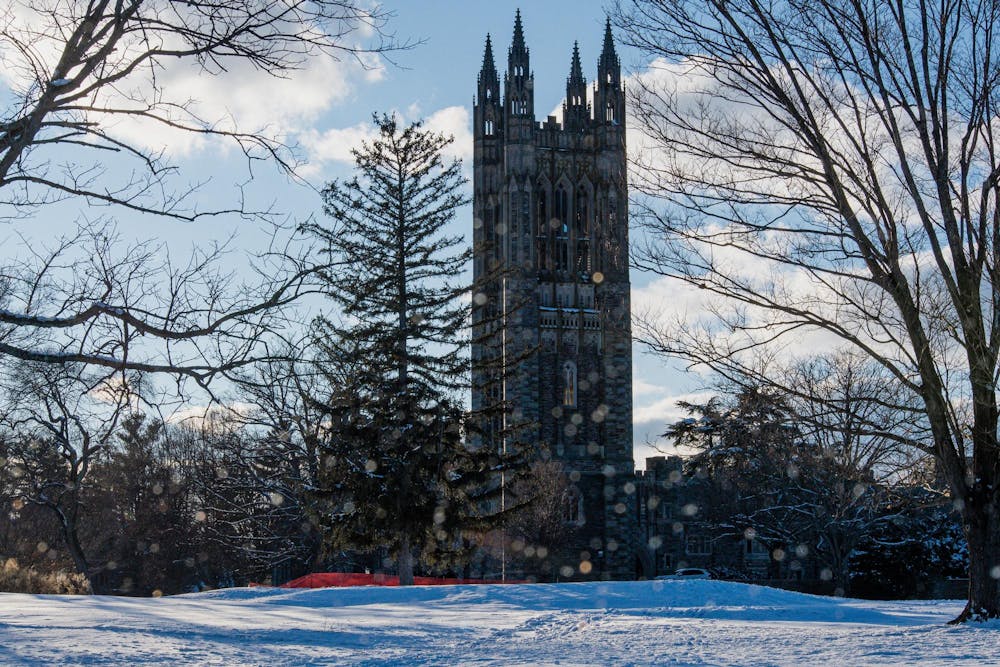On April 1, 2024, Princeton’s faculty approved a proposal from the Graduate School to include graduate student representatives on each of the Faculty Committee’s four key subcommittees for the very first time, introducing a new framework for shared governance. These subcommittees — part of the Faculty Committee on the Graduate School — oversee academic policy, curriculum, student life, and discipline, among other matters.
Students involved in the new shared governance model, which launched in the 2024–25 academic year, expressed appreciation for the opportunity to participate in institutional decision-making. However, some pointed to the need for clearer structure as the model continues to evolve.
“I think it’s nice for graduate students to know how policies and decisions around graduate students are thought about, decided, and worked on,” Nikita Taniparti GS, who sits on the Policy Committee, told The Daily Princetonian. “We’re so engrossed in our own thing that it’s hard to really see how the University — especially administration — around graduate students works.”
“This feels like a very valuable way to give back to Princeton for me,” she added.
According to students and staff, the shared governance model emerged out of calls to integrate more student voices into decisions made by faculty and administration. While students have participated in University-wide governance through bodies such as the University Priorities Committee and the Council of the Princeton University Community, this is the first time that governance in the Graduate School has been shared.
“This is an initiative that’s been in the works for several years now,” Rias Reed GS, one of eight student committee members, explained.
“Many of us, including students and the Graduate School staff, recognized the gap in student governance at the Graduate School level, but addressing this required a formal change to the School’s governance structure,” Lisa M. Schreyer, Deputy Dean of the Graduate School, said in a statement to the ‘Prince.’
Currently, there is a Graduate Student Committee with eight students, in addition to four subcommittees chaired by faculty with two student representatives each. Half of the students were selected by the Graduate School, and the other half were selected by the Graduate Student Government.

“I think the idea was to have this more formal avenue — to have more regular, periodic ways to communicate between the grad school and admin,” Taniparti added.
Reed believes that student input has enhanced the quality of the subcommittees, which used to be composed exclusively of faculty members.
A part of the Curriculum Subcommittee, Reed explained that integrating more student voices has been “incredibly effective,” given that students are the ones directly engaging with the course material and syllabus.
“I truly appreciate the Grad School for including grad student voices in early stages of thinking about different solutions, or different initiatives,” Reed continued.

“In these challenging times, we have found the subcommittees to be very productive sounding boards for issues that are impacting our community,” Schreyer wrote. “Having students in these conversations is invaluable.”
“It’s been good to interact with faculty and really share our opinions on each topic — surprisingly, we don’t disagree that much,” Nivedita Kanrar GS, who sits on the Student Life and Discipline Subcommittee, told the ‘Prince.’
However, students also acknowledged that the shared governance model is still in its first year and highlighted areas that could be improved.
For one, Kanrar explained that coordination as a broader Graduate Student Committee is sometimes difficult, as members are focused on each of their own subcommittees. “If we wanted to make proposals ourselves, we would have to meet outside and independently coordinate, which is really very difficult,” she said. Such proposals would move through the Policy Subcommittee, which reviews and makes recommendations on policy issues.
“I would like to see more communication between grad students and the larger Faculty Committee of the Graduate School,” Reed added. “Those committees are still very much separate.” Reed explained that he proposed increasing opportunities for dialogue between the faculty and student committees, which “would be truly where I see more room for growth and effectivity.”
Anne Lheem, the University Administrative Fellow for the Office of the Dean of the Graduate School, said in an email to the ‘Prince’ that she is helping conduct “a preliminary review of how the shared governance model is going at the Graduate School.” Lheem’s role is not tied to any single committee, but rather is seeking to collect insights on how the shared governance model more broadly has operated in the past year.
“We’re still defining the roles,” Kanrar said. “I think this is an active work between us and members of the Graduate School administration, and they’ve been flexible in this and open to discussions.”
Sena Chang is a senior News writer for the ‘Prince.’ She typically covers campus and community activism, the state of higher education, and alumni news.
Please send any corrections to corrections[at]dailyprincetonian.com.








